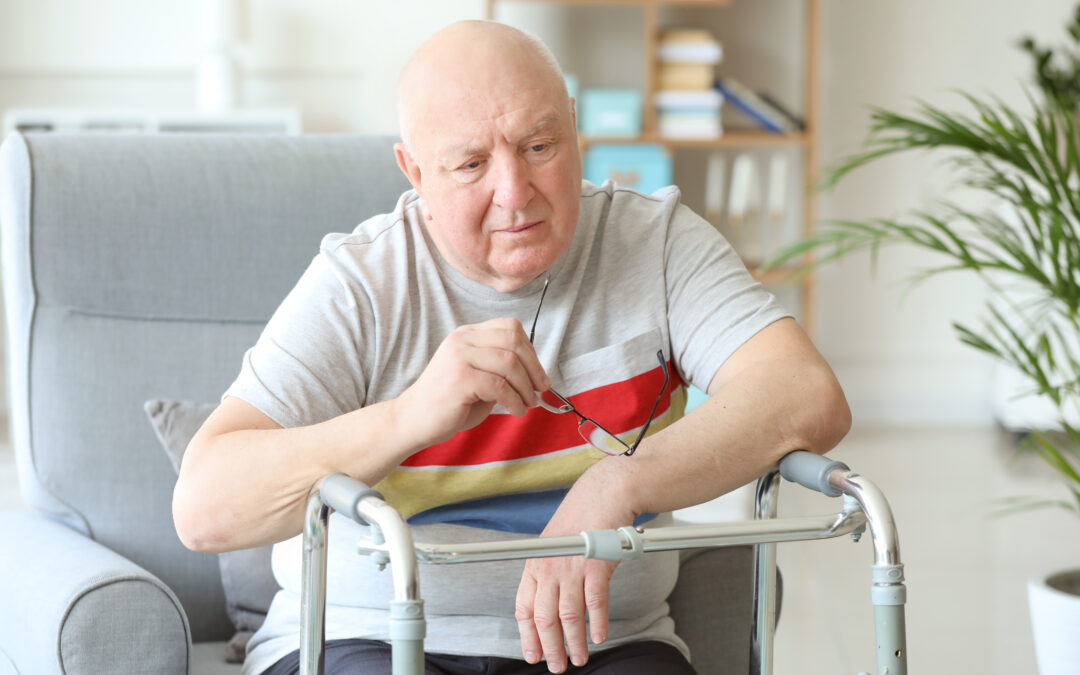Seniors Stranded in Hospitals for Months due to Scarcity of Nursing Home Beds, Leaving Them Prone to Infection, Delirium, and Premature Death
American nursing home beds are rapidly disappearing, leaving seniors stranded in hospitals where they are vulnerable to a host of health risks, says a Wall Street Journal article. Thanks to a long-understaffed industry and the ravaging of nursing homes during the Covid-19 pandemic, the nation is operating with 600 fewer nursing homes now than in 2017, and with the lack of available beds, American seniors are languishing, often for months at a time, in hospital environments that have proven dangerous for them.
Poor nursing home staffing, aggravated by the pandemic, has exacerbated an already shrinking industry. Several U.S. nursing homes grappling with staff shortages have had to take nursing home beds offline. Even as staffing levels have improved in the nation’s hospitals since the deadliest days of Covid-19, nursing homes are still struggling to recover. As a result, many elderly Americans in need of long-term elder care are instead finding themselves in hospitals, which not only cannot provide the specific care fragile seniors need, but also expose the vulnerable elderly to a range of health dangers. Similarly, seniors who have recovered from an injury or a spate of ill health in a hospital and are ready to move on to long-term care have nowhere to go. In Massachusetts, says the WSJ article, some patients wait six months or longer to move to nursing homes.
Elderly people stuck in hospital settings are at increased risk for the following health problems:
- Infection: Hospitals expose patients to infectious diseases like MRSA; patients are also more susceptible to developing hard-to-treat pneumonia.
- Delirium: About half of all elderly patients and up to 85 percent of intensive care unit patients experience delirium, which can double a patient’s risk of death, according to a Fierce Healthcare article.
- Premature Death: According to Parent Giving, even short hospital stays can result in the aforementioned problems or other issues like medication errors and falls, all of which could be life-threatening, putting families in the position of needing to obtain a wrongful death attorney.
In long-term care facilities it is considered nursing home malpractice not to meet the unique needs of their residents; however, hospitals, which concentrate on treating illnesses and injuries, are not oriented toward giving the specific sort of care elderly patients need. As a result, complications beyond the original reason for their admittance can develop; for instance, allowing patients’ movements to be restricted by medical equipment or not preventing patients from spending long stretches of time in hospital beds can result in the development of pressure ulcers or blood clots or lead to muscle deterioration.
Understaffing is Nursing Home Malpractice
Nursing home understaffing directly contributes to incidence of nursing home malpractice. Operating with fewer nursing home workers weakens a facility’s capacity for providing the level of care elderly residents need to uphold their health and human dignity. The following types of nursing home malpractice can occur as the result of poor staffing in nursing homes:
- Bed sores
- Nursing home falls
- Nursing home injuries
- Nursing home infections
- Malnutrition and dehydration
- Poor nursing home hygiene
- Wrongful death
If you’re concerned about the staffing levels at your loved one’s home, or if your elderly parent is showing signs of any of the above signs of nursing home malpractice, you should contact a nursing home malpractice and wrongful death attorney immediately.
Demanding Adequate Staffing to Prevent Nursing Home Malpractice and Wrongful Death
Attorney Brian P. Murphy is dedicated to protecting the safety and preserving the rights of Pennsylvania, Philadelphia, or New Jersey nursing home residents. In all matters pertaining to resident safety, including nursing home understaffing, nursing home malpractice and wrongful death attorney Brian Murphy strives to hold negligent Philadelphia/PA or NJ nursing homes accountable. He endeavors to ensure nursing homes protect residents from physical abuse, psychological abuse, neglect, and other types of nursing home malpractice. Should you find yourself needing to contact a nursing home malpractice and wrongful death attorney, or if you need guidance in choosing a nursing home, call Brian Murphy today to discuss your legal options.







